| HOME | PARTICIPATING INSTITUTIONS | WHO WE ARE | FR. SCANNONE | PHOTOS | VIDEOS | EVENTS | CONTACT US |
Ecclesia in America Network |
|||||||||||||||||
|
|||||||||||||||||
WHO WE ARE
|
:: Participants |
||||
| :: Participants | |||||
Maria Clara Lucchetti Bingemer holds a degree in Social Communication from the Pontifical Catholic University of Rio de Janeiro (1975), a Master’s degree in Theology from the Pontifical Catholic University of Rio de Janeiro (1985) and a PhD in Systematic Theology from the Pontifical Gregorian University (1989). She is currently a full professor in the Department of Theology at PUC-Rio. For ten years she ran the Loyola Faith and Culture Center at the same University. For four years, she was an evaluator of graduate programs at the Coordination for the Improvement of Higher Education Personnel (CAPES). For six years, she was dean of the Center for Theology and Human Sciences at PUC-Rio. She has experience in the area of Theology, with an emphasis on Systematic Theology, focussing mainly on the following themes: God, otherness, woman, violence and spirituality. In the last few years, she has been researching and publishing on the thought of the French philosopher Simone Weil. Nowadays, her studies and research are primarily directed towards the thinking and writing of contemporary mystics and the interface between Theology and Literature. |
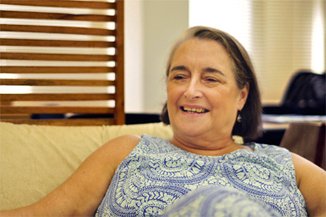 |
||||
Peter Casarella received his Ph.D. in 1992 from the department of Religious Studies at Yale University. In 2008 he was named the founding Director of DePaul’s Center for World Catholicism and Intercultural Theology. In 2005-2006 he served as president of the Academy of Catholic Hispanic Theologians in the U.S. (ACHTUS) and was from 2009-2014 the fourth President of the American Cusanus Society. He served in 2016-2017 as the President of the Academy of Catholic Theologians. In 2013 he joined the Department of Theology at the University of Notre Dame as an Associate Professor to teach systematic theology and later was asked to serve as Area Coordinator for the doctoral program in World Religions and World Church. In Notre Dame’s Kellogg Institute for International Affairs, he directs the Latin American North American Church Affairs project. In 2020 he was named Professor of Theology at the Divinity School at Duke University. He has edited or co-edited the following volumes of essays: with Raúl Gómez, S.D.S., Cuerpo de Cristo: The Hispanic Presence in the U.S. Catholic Church (Crossroads, 2003); with George Schner, S.J., Christian Spirituality and the Culture of Modernity: The Thought of Louis Dupré (Eerdmans, 1998); with Will Storrar and Paul Metzger, A World for All? Global Civil Society in Political Theory and Trinitarian Theology (Eerdmans, 2011); Cusanus: The Legacy of Learned Ignorance (Catholic Univ. Press, 2006), and Jesus Christ: The New Face of Social Progress (Eerdmans, 2015). He published a monograph, Word as Bread: Language and Theology in Nicholas of Cusa, on the fifteenth century humanist Cardinal Nicholas of Cusa that appeared with Aschendorff Verlag in 2017. He is currently working on a book that will address the doctrine of God from a Latino/a perspective: The God of the People. He lives in Durham, North Carolina with his wife Maria Consuelo and their five children. |
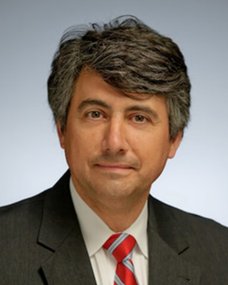 |
||||
Jose Carlos Caamaño PhD in Theology from the Faculty of Theology of the Pontifical Catholic University of Argentina. He is a regular professor of Dogmatic Theology I at the Faculty of Theology of the Pontifical Catholic University of Argentina. Guest professor at the Faculty of Philosophy and Letters of the University of Buenos Aires (UBA). He is Guest professor in the postgraduate course in Comparative Religions of the Austral University. He teaches courses and classes at various study centers in the country. He has been Academic Secretary of the Faculty of Theology in the periods from 2009 to 2014. He was Vice-Dean for the period 2014-2016. He has been President of the Argentine Society of Theology, periods 2013-2016 and 2016-2019. He is an expert witness of the “Faith-Culture” Commission of the Argentine Episcopal Conference. He is a member of the International Association for Patristic Studies. Member of the Theological Research Institute of the Faculty of Theology, of the Catholic University of Argentina in the research groups. Director of the Research Group on Current Popular Culture. Director of the magazine Teología, four-monthly publication of the Faculty of Theology of the Pontifical Catholic University of Argentina. Member of the CLACSO Working Group on Theology, Ethics and Politics. |
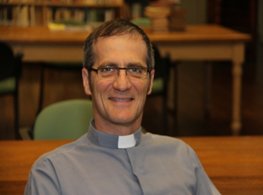 |
||||
Hosffman Ospino was born in Colombia where he pursued undergraduate studies in Philosophy. He taught philosophy and religion at various academic levels and worked for the National Confederation of Catholic Education of Colombia. He holds an M.A. in theology with concentration in Church History and a Ph.D. in Theology and Education from Boston College. Dr. Ospino’s research concentrates on the dialogue between theology and culture and the impact of this interchange upon Catholic theological education, catechesis, and ministry. He has lectured nationally and internationally on these areas. He and his wife, Guadalupe, are actively involved in Hispanic Ministry in Boston. |
|
|
|
||
Juan Carlos Scannone S.J. is a famous theologian who was one of the teachers of Pope Francis. He entered the Society of Jesus in 1949; his academic career begins in 1956, when he graduated in Philosophy from the Faculty of Philosophy of San Miguel, Argentina. Then he studied Theology at the University of Innsbruck, Austria (1963); and obtained the degree of Doctor of Philosophy from the University of Munich, Germany (1967). Since then, his worldwide influence has been universally recognized. He is professor emeritus at various universities in Argentina and Europe. He chairs the Church Social Doctrine research group of ODUCAL (Organization of Catholic Universities of LA) and represents CELAM in it. He participated as an expert in numerous meetings of CELAM (Latin American Episcopal Council), and other Church organizations: CLAR (Latin American Council of Religious), Adveniat (Germany), etc.; he was a member of the Theological Commission of CONFAR (Council of Religious of Argentina); since 2003 he was part of the advisory team of the CELAM “Justice and Solidarity” Department. Since 2014, Father Scannone was a permanent collaborator of the well-known Italian Jesuit publication, the Civiltà Cattolica. |
|
|
|||
Allan Figueroa Deck S.J. is a Distinguished Scholar in Pastoral Theology and Latino Studies and holds a dual appointment as Lecturer in the Departments of Theological Studies and Chicano/Latino/a Studies at Loyola Marymount University. He earned doctoral degrees in Theology from the Pontifical Gregorian University and in Latin American Studies from Saint Louis University. Father Deck is the author or editor of nine books and more than 60 chapters in books and journal articles on Pastoral Theology, Latino/a Studies, Catholic Social Teaching, Spirituality and Intercultural Competence. Father Deck’s latest book is Francis, Bishop of Rome: The Gospel for the Third Millennium (Paulist 2016). In addition to teaching, research and writing, Fr. Deck has served as parish administrator, director of Hispanic ministry, founder and first executive director of the Loyola Institute for Spirituality in Orange, California, and co-founder and first president of the Academy of Catholic Hispanic Theologians of the United States (ACHTUS). He served as first executive director of the Secretariat of Cultural Diversity in the Church of the United States Conference of Catholic Bishops. A nationally-recognized speaker, Father Deck has received the John XXIII Award of the Catholic Library Association for contributions to church renewal in the spirit of the Second Vatican Council, the Sadlier Award for contributions to religious education, and the Virgilio Elizondo Award of ACHTUS for contributions to the development of a theology of and for Latino/as in the United States. |
|
|
|
||
Nancy Pineda-Madrid is Vice President of the International Network of Societies of Catholic Theology (INSeCT) and Past President of the Academy of Catholic Hispanic Theologians of the United States (ACHTUS). She is among the first U.S. Latinas to hold a Ph.D. in Systematic Theology. She is the first theologian to publish a book on the evil of feminicide arguing that this tragedy demands a fresh consideration of what salvation means. Her book, Suffering and Salvation in Ciudad Juárez (Fortress Press, 2011) has become required reading in classrooms across the country. She has since co-edited Hope: Promise, Possibility and Fulfillment (Paulist Press, 2013), and With the Holy Spirit: Responding to the Giver of Life (Paulist Press, forthcoming 2017). America Magazine has named Pineda-Madrid as one of seven most promising theologians of the next generation, and in 2012, she received the Loretto Legacy Award for Religion and Theology. |
|
|
|
||
Rocío Cortés-Rodríguez is a doctoral student in the Department of Theology at the University of Notre Dame. Her area of concentration is World Religions and World Church and her minor is Systematic Theology. She received her master’s degree in The Religious Roots of Europe from the University of Helsinki, Finland. Previously, she obtained a bachelor’s degree in theology from the Pontifical Catholic University of Chile, Chile. Rocio's research focuses on interfaith dialogue, especially between Christians and Muslims. She also concentrates on Latin American theology, particularly the fields of liberation and indigenous theology. Within these fields, her research explores coexistence and dialogue among people of different religious traditions across Latin America. |
|
|
|
||
David Lantigua is Assistant Professor of Moral Theology/Christian Ethics at the University of Notre Dame. He taught previously at The Catholic University of America in Washington, DC. He is author of Infidels and Empires in a New World Order: Early Modern Spanish Contributions to International Legal Thought (Cambridge University Press, 2020) and co-editor with Lawrence Clayton of Bartolome de las Casas and the Defense of Amerindian Rights: A Brief History with Documents (University of Alabama Press, 2020). He is also co-author with Darrell Fasching and Dell deChant of Comparative Religious Ethics: A Narrative Approach to Global Ethics (Wiley, 2011). He has published in Modern Theology, Journal of Law and Religion, Journal of the Society of Christian Ethics, Church Life Journal, and Journal of Moral Theology. |
|
|
|
||
Fredy Parra Carrasco. PhD of Theology from the Pontifical Jesuit Faculty of Theology and Philosophy of Belo Horizonte, Brazil. Full Professor of the Faculty of Theology of the Pontifical Catholic University of Chile. He has been Vice-Dean between 2004-2012 and Dean between 2013-2015 of the same Faculty of Theology of the Catholic University of Chile. He is currently Director of the Manuel Larraín Theological Center. He works in the area of Systematic Theology in the courses of Creation, Eschatology and Latin American Theology. He has published Modernidad, utopía e historia en América Latina (1995), El Reino que ha de venir: Historia y esperanza en la obra de Manuel Lacunza (2011), Esperanza en la historia: Idea cristiana del tiempo (2011) and is co-author of Pensamiento social de la Iglesia y ciencias sociales: Horizontes teológicos para un diálogo (2006), and various theological articles related to his field of specialty. |
|
|
|
||
Daniel Patrick Castillo. Assistant Professor of Theology, Loyola University Maryland Ph.D. Theology, University of Notre Dame, Notre Dame, IN, 2014. Books: An Ecological Theology of Liberation: Salvation and Political Ecology (Maryknoll: Orbis Books), forthcoming December 18, 2019. Essays: “Hacia una Teología Ecológica de la Liberación: A partir de la obra de Gustavo Gutiérrez,” trans. Pedro De Guchteneere Paginas, 254 (2019): 22–28. “The Tree of Christ and the Tree of Satan: Ignatian Discernment in a Time of Eco-Social Crisis,” The Other Journal 28 (2018): 93–98. “Speaking Structurally: Medellin’s Conception of the Socio-Structural Dimension of Human Life,” in The Legacy of Medellin (Miami: Convivium, 2018), 124–135. “Prophetic Mourning, Lament, and the Ecological Crisis” in Our Fragile Earth, ed. William T. Cavanaugh (Eugene: Cascade, 2018), 151–162. “Against the Unity of Babel: Liberation Theology and the Language of Sustainable Development” in Theology and Ecology Across the Disciplines, eds. Celia Deane-Drummond and Rebecca Artinian-Kaiser (London: Bloomsbury/T&T Clark, 2018), 119–131. |
|
|
|
||
Lucas Cerviño. PhD in Fundamental Theology and ecclesial degree in Missiology. Of Argentine origin, in the last 20 years he has lived in Santiago de Chile, Cochabamba (Bolivia), Barcelona and Puebla (Mexico) where he currently resides. His areas of reflection are the intercultural proposal, the religious-spiritual phenomenon and social morality. He works in youth accompaniment, in an international comprehensive training school. Teacher at the Institute of Missiology (Faculty of Theology San Pablo, Cochabamba-Bolivia), at the Seminario Mayor Santa Virgen de Guadalupe (Diocese of Tehuacán, Puebla-México) and at CEFyT (Córdoba, Argentina). Coordinator of the Diploma in Missiology “Discípulos misioneros para que nuestros pueblos tengan vida” (Universidad Simón Bolivar-Instituto de Misonología). Member of the International Association of Catholic Missiologists; the CELAM Trinitarian Anthropology group; of the University Network for the Study of Fraternity (RUEF). Member of the team responsible for the implementation of the Latin American headquarters of the SOPHIA University Institute. He has published: La vida religiosa, ¿pasión o desencanto? Análisis y perspectivas, Itinerarios Editorial, septiembre 2011 (in co-edition); Fraternidad e instituciones políticas. Propuestas para una mejor calidad democrática, Ciudad Nueva, Buenos Aires, octubre 2012 (comp.); Otra misión es posible. Dialogar desde espacios sapienciales e interculturales, Cochabamba, Itinerarios, 2009. About to publish his doctoral thesis: La experiencia y el conocimiento de lo Real en Raimon Panikkar y Marià Corbí. Aporte sapiencial en tiempos de pluralismo. |
|
|
|
||
Enrique Ciro Bianchi. Born in Rosario (5/5/1970). He is a priest of the diocese of San Nicolás de los Arroyos (Argentina). He obtained the degree of Bachelor of Theology with a specialization in Dogmatic Theology at the Faculty of Theology of the Pontifical Catholic University of Argentina. He is a member of the Argentine Society of Theology. He participates in various theological research groups. Professor at the “La Encarnación” Seminary (Resistencia, Chaco) and at the UCA Faculty of Theology. He has published various theological studies on the way Christian life takes in popular settings in Latin America. Books: Pobres en este mundo, ricos en la fe. La fe de los pobres de América Latina según Rafael Tello, Ágape, 2016; El sueño de Francisco: la Evangelii Gaudium, Ediciones Paulinas, 2014. |
|
|
|
||
Marco Strona Phd in Philosophy and currently undertaking a Doctorate degree in Trinity Theology-Ontology by the Sophia University Institute and the Pontifical Catholic University of Rio de Janeiro (co-tutelage), with work on the theological reading of migration by the magisterium of Pope Francis (Co-Directors: Piero Coda and Maria Clara Bingemer) |
|
|
|
||
Cesar Augusto Kuzma PhD in Theology from the Pontifical Catholic University of Rio de Janeiro - PUC-Rio. Master’s in Theology from the Pontifical Catholic University of Rio de Janeiro - PUC-Rio. Bachelor of Theology from the Pontifical Catholic University of Paraná - PUCPR. Professor of Systematic Theology at the Department of Theology at PUC-Rio - Undergraduate and Graduate Studies. Develops research projects in the areas of Eschatology, Ecclesiology / Laity, Pastoral and Ethics, correlating themes of eschatology, ecclesiology and Christology. He always seeks to discern from the view of the lay Christian and their situation in the Church and in society. He works as a theological-pastoral adviser at CNBB (Laity Commission), at CRB, at CNLB and in some Dioceses, also in groups, movements, pastorals and grassroots ecclesial communities. Guest professor at Universidade Católica Portuguesa, for postgraduate courses. Guest professor at CEBITEPAL / CELAM. He is the current president of SOTER (Society of Theology and Religious Sciences - for 2016-2019). He is a speaker and lecturer at various institutions. |
|
|
|
||
Paulo Fernando Carneiro de Andrade Graduated in Mechanical Engineering with Nuclear Emphasis from the Pontifical Catholic University of Rio de Janeiro (1981) and PhD in Theology from the Pontifical Gregorian University of Rome (1989). He is a full-time professor at the Pontifical Catholic University of Rio de Janeiro. Among other functions held in scientific entities he was President of the Society of Theology and Sciences of Religion (SOTER), member of the Globethics network board of directors and vice president of the International Network of Societies for Catholic Theology (INSeCT). He researches with emphasis on Systematic Theology and Social Moral, acting mainly on the following themes: Liberation Theology, Faith and Politics, Church Social Doctrine, and Christian Social Ethics. |
|
|
|
||
Carlos Alejandro BertoliniHe was born in La Falda, Córdoba, in 1975. He is a diocesan priest from San Isidro - Buenos Aires, where he currently resides. He completed his Baccalaureate at the Episcopal College San Agustín de San Isidro (2001), his Bachelor's degree at the Colegio Máximo de San Miguel and at the Faculty of Theology of the UCA (2007) and his Doctorate at the Lateran University of Rome (2011). He currently works as a professor of systematic subjects at the UCA and the Colegio Máximo de San Miguel, as well as at various lay formation centers. He also participates in various groups and research projects. |
|
|
|
||
Emilce Cuda holds a PhD in theology from the Pontifical Catholic University of Argentina, where she also works as a teacher. She also teaches at the Faculty of Philosophy at the University of Buenos Aires - UBA and at University Arturo Jauretche, as well as at other institutions in the United States - Boston College and Northwestern University. Specialist in social issues, focusing on the theology and politics in Latin America and the North – South dialogue. She is a member of the international network of theologians of the Catholic Theological Ethics in the World Church. |
|
|
|
||
Olga Consuelo Velez Caro holds a PhD in Theology from the Pontifical Catholic University of Rio de Janeiro. Master’s in Theology from the Javeriana Pontifical University. Professor and researcher at the Faculty of Theology of the Javeriana Pontifical University and a Bachelor of Theology from the Fundación San Alfonso. Professor of the virtual missionary formation program. Since 2011 (Ecclesiology and Christology) Professor "Enfoque feminista de la Teología cristiana". Online Diploma, Chair of Feminist Theology. Religious Sciences Department, Universidad Iberoamericana; México, D.F. Since 2018 Teaches the course “Las mujeres en la Iglesia”. Boston College School of Theology and Ministries. Sept-October 2019. Member of the Theological Committee of the Colombian Episcopal Conference. Author of several books and numerous book chapters and articles. |
|
|
|
||
Sixto José Garcia is Professor Emeritus at St. Vincent DePaul Regional Seminar in Boynton Beach, Florida. He holds a Ph.D. in Systematic / Philosophical Theology from the University of Notre Dame. He is a member of the Catholic Theological Society of America (CTSA) and of the American Catholic Philosophical Association |
|
|
|
||
Gonzalo Javier Zarazaga, SJ is a Jesuit priest, with a degree in Philosophy from the University of El Salvador (USAL) and a PhD in Theology from the Sankt Georgen Philosophisch / Theologische Hochshule, Frankfurt. Currently, he is a professor at the USAL Faculty of Theology, where he held the position of Dean of Theology from 2002 to 2013. He combines his teaching work in different theology faculties with that of writer of numerous works. |
|
|
|
||
Raúl Gómez Rev. P. Raúl Gómez-Ruiz, SDS, Ph.D., is the tenth rector of the seminary and school of theology, Sacred Heart Seminary and School of Theology, Hales Corners (Milwaukee), Wisconsin, USA. He was invested on July 1, 2019 for a period of five years. Recently, Fr. Gómez concluded a six-year period as Vicar General and Secretary General of the Society of the Divine Savior (SDS; Salvatorians) in Rome. Prior to his service in Rome, he served for nearly 25 years in a variety of roles on Sacred Heart. From 1988 to 2004 he was the director of the Hispanic Studies Program, one of the first programs of an American major seminary dedicated to preparing pastoral agents for the growing Latino population in the country’s Catholic church. From 2002 to 2005 he was the vice-chancellor, and from 2005 to 2012 he was the vice president for academic affairs and the director of intellectual training at Sacred Heart. Father Gómez in 2012 moved to the “Association of Theological Schools in the United States and Canada”, Pittsburgh, Pennsylvania, as director of accreditation and institutional evaluation. In that same year, he was elected by his Salvatorian confreres at the general chapter held in Krakow, Poland to serve his religious congregation in the general curia in Rome. He has received a Bachelor of Arts degree in Spanish from the University of Arizona in Tucson, Arizona, a Master in Public Business Management from California State University Sacramento, California, a Master of Divinity in Pastoral Theology from Franciscan School of Theology in Berkeley, California, and a Doctor of Liturgical Studies from the Catholic University of America in Washington, DC. In addition, he has served as president of ACHTUS (the association of Hispanic Catholic theologians of the United States) and the Hispanic Institute of Liturgy (USA). He is a member of the Royal Academy of Fine Arts and Historical Sciences of Toledo (Spain), the Catholic Theological Society of America and the North American Academy of Liturgy. Father Gómez is a native of Bisbee, Arizona, from a family of Mexican origin, and professed his first vows as a Salvatorian in 1982; he was ordained a priest in 1987. In addition to English and Spanish, he speaks Portuguese, French, and Italian. He has published five books and contributed to 10 others. Furthermore, he has published dozens of articles and book reviews. Father Gomez is the first Native American Latino to be named rector of a major seminary in the United States. |
|
|
|
||
Most Rev. Oscar Cantú, S.T.D., was born December 5, 1966, in Houston, TX, the son of Ramiro and Maria de Jesus Cantú, natives of small towns near Monterrey, Mexico. He is the fifth of eight children, five boys, and three girls. Bishop Cantú attended Holy Name Catholic School and Saint Thomas High School in Houston, and he earned his Bachelor of Arts degree from the University of Dallas, TX. He received his Masters in Divinity and Masters in Theological Studies from the University of Saint Thomas also in Houston. He attended the Pontifical Gregorian University in Rome Italy where he earned his Licentiate in Sacred Theology (S.T.L.), as well as his Doctorate in Sacred Theology (S.T.D.) in Dogmatic Theology. Bishop Cantú was ordained a priest of the Diocese of Houston in 1994. Bishop Cantu has served on several committees of the United States Conference of Catholic Bishops (USCCB), such as the Committee on Catholic Education, the Doctrine Committee, the Sub-Committee on Hispanic Affairs, and the Committee on International Justice and Peace. He chaired the Committee on International Justice and Peace from 2015 to 2017. In that role he visited churches in some of the most troubled areas of the Middle East, Africa, Latin America, and Asia to represent the U.S. bishops in showing solidarity with the local churches like those of South Sudan and the Democratic Republic of the Congo that are under great duress. He twice visited Iraq and Cuba. In the Middle East, he visited churches in Gaza, Jerusalem, Israel, and the West Bank, advocating on behalf of the two-state solution, the long-held position of the church. He spoke on behalf of the USCCB at the United Nations and in London in defense of the church's teaching on non-proliferation of nuclear weapons. He called for religious liberty in the Middle East, Indonesia, Malaysia, and India. He visited Japan in 2015 for the ceremonies marking the 70th anniversary of the atomic bombing of Nagasaki and Hiroshima. He was one of two delegates chosen by the bishops' conference to represent the USCCB at Pope Francis' visit to Mexico in February 2016. Bishop Cantu was appointed by Pope Francis as coadjutor bishop of San Jose, California, on July 11, 2018. He became the Ordinary Bishop of San Jose on May 1st, 2019, as the third Bishop of the Diocese of San Jose, California. |
|
|
|
||
Sandra Ester Arenas Perez PhD in Systematic Theology from the Catholic University of Leuven-Belgium (KU Leuven). Professor of Systematic Theology at the Faculty of Theology of the Pontifical Catholic University of Chile. His fields of specialty: Ecclesiology, theology and history of the Second Vatican Council. Ongoing research: Church power and leadership in crisis. Chilean Approach (PUC Research Funds); Contribution of Chile to the Second Vatican Council (Conicyt); History of Desire of Christian Unity (collaboration with Bologna project); History and intercontinental commentary Vatican Council II (collaboration project prof. Dr. Peter Hünnerman). He has published a series of academic books and articles in ecclesiology and ecumenical conciliar ecclesiology, in addition to studies on Chile's contribution to the Second Vatican Council. |
 |
||||
Claudia Herrera-Montero was born in Bogotá, Colombia where she pursued undergraduate studies in Ciencia Política, Gobierno y Relaciones Internacionales at Universidad de Nuestra Señora del Rosario. She holds an M.A. in Pastoral Ministries and a Ph.D. in Practical Theology from St. Thomas University. Her doctoral dissertation, "Understanding Contemporary Practical Latino/a Theology Through the Lenses of College-Age Latinas in Their 20's: A New Marianismo?" has expanded her research on participatory-action research (PAR) with young Latinas and their families in the classroom and ministerial settings. Dr. Herrera teaches in areas of practical theology and allied fields and has published and presented nationally and internationally on these areas. She serves as the Secretary of the Academy of Catholic Hispanic Theologians of the United States (ACHTUS) and teaches in the graduate program at the Southeast Pastoral Institute for Hispanic Ministry (Instituto Pastoral del Sureste para el Ministerio Hispano). |
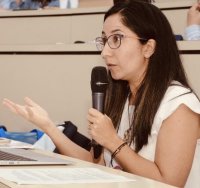 |
||||
Roberto Tomichá Charupa PhD in Missiology: Gregorian University of Rome. Ordinary professor and director of the Institute of Missiology in the Faculty of Theology "San Pablo" of Cochabamba (UCB). Guest Professor at the Faculty "San Bonaventura" in Rome. He has written articles on indigenous missiology and theology in various academic journals in Latin America and Europe. |
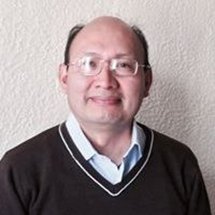 |
||||
José Daniel López S.J. PhD In Philosophy (University of Namur-Leuven Academy / Center Sèvres - Jesuit Faculties in Paris) Professor of Philosophical Theology at the Jesuit Faculties in San Miguel (Buenos Aires). Theology and Phenomenology, Educc, 2008. |
 |
||||
Susana Nuin Núñez, Uruguayan, lived for many years in Argentina, therefore from the region of Río de la Plata. PhD in Social Sciences from the Gregorian University PUG, Bachelor of Sociology from PUG, Media Analyst from Universidad del Salvador, Master’s in Social Doctrine of the Church from the Lateran University PUL. Diploma in Popular Communication CLC La Salle. Member of several research teams including: IUS SOPHIA ALC (Land Distribution Program in LAC and Trinitarian Anthropology), GRUPO FARRELL of Church Social Doctrine, SCUOLA ABBÁ COMUNICACION (ME). She was Professor and Researcher at the University of Buenos Aires UBA, Founding Member of the Latin American Center for Social Evangelization CLAdeES, Coordinator of the Master in Church Social Doctrine for the Southern CONE of the University of Salamanca, Consultant at the V General Conference of the Latin American Episcopate in Aparecida, Director of Communications of the Latin American Episcopal Council CELAM, started the CELAM Social School. There are several publications of her authorship and works in conjunction with groups of researchers. |
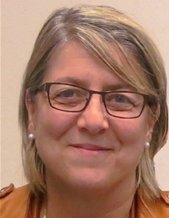 |
||||
Horacio Vela. Ph.D. University of Notre Dame. M.A.R. Yale Divinity School. B.A. University of Texas at Austin. Research Interests: New Testament Studies; Hellenistic Judaism; Early Christianity; Hispanic Religion and Theology. Publications: "Magical Text Concerning the Eyes and Face,” 129–30 in Coptica Argentoratensia: Conférences et documents de la 3e université d'été en papyrologie copte (Strasbourg, 18–25 juillet 2010). ed. A. Boud'hors, A. Delattre, C. Louis and T.S. Richter. Éditions du Bocard, 2014. "Pope Benedict XVI's Use of Scripture in Caritas in Veritate,” 19–29 in Jesus Christ: The New Face of Social Progress, ed. Peter J. Casarella. Eerdmans, 2014. “Philo and the Logic of History,” Studia Philonica Annual 22 (2010): 165–82. |
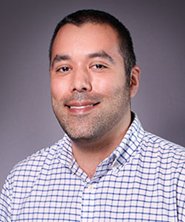 |